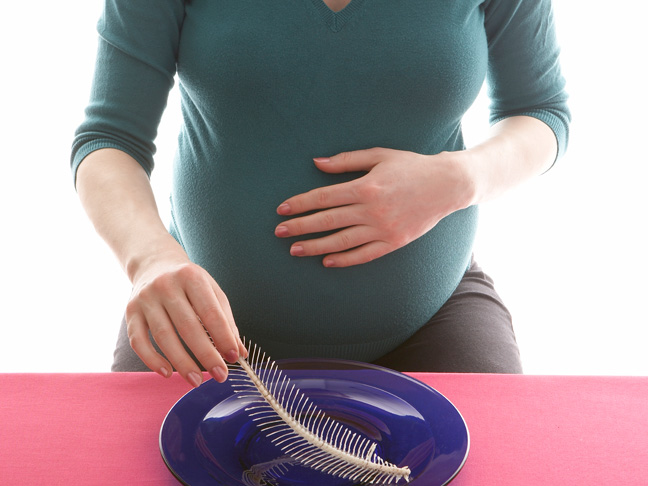The debate over the safety of certain fish options for pregnant women heated up again mid-August in a war of words between the FDA and Consumer Reports. As part of a healthy prenatal diet, fish is recommended as a great source of lean protein and omega-3 fatty acids. The obvious problem? Some types of fish are also a source of dangerous levels of mercury, so once again Consumer Reports is taking issue with new FDA guidelines, this time targeting canned tuna.
The FDA’s newest recommendations come after a study by the Harvard School of Public Health revealed that one in five women were avoiding fish during their pregnancy. The FDA provides a list of the average amount of mercury found in fish. Tuna has relatively high mercury levels: that’s why Consumer Reports objects — again — to the new FDA guidelines. They put out similar warnings in 2006 and 2011.
It’s fairly well known that white albacore tuna is a high-mercury fish to be avoided during pregnancy, “light” canned tuna is a lower mercury-content option still approved by the FDA in limited quantities. As reported on Today.com, Consumer Reports strongly disagrees, recommending that all tuna be avoided during pregnancy. The FDA and Consumer Reports do agree on good low-mercury fish choices: salmon, shrimp, Pollock, tilapia, catfish and cod being some healthful and safe options.
What is clear is that everyone should be aware of which fish have the high mercury levels: tilefish, swordfish, shark and king mackerel, grouper and halibut top the list and should be consumed with caution. Mercury can have toxic effects on the nervous system, and the levels in some species of fish have risen nearly 30 percent over the past twenty years. Safe mercury levels also depend on the body weight of the consumer, which is why children are at higher risk. And because of the developing brain and nervous system of a fetus, pregnant women must be especially careful.
Photo: Getty








